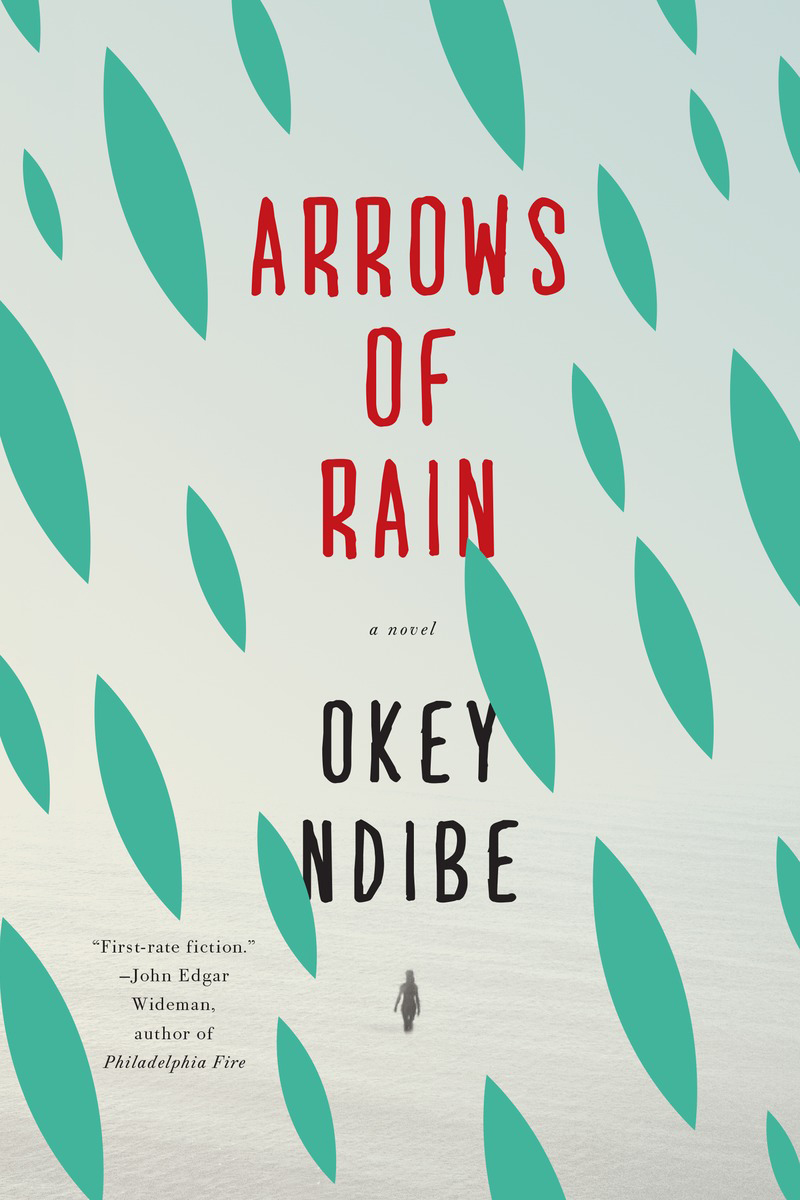
Arrows of Rain
کتاب های مرتبط
- اطلاعات
- نقد و بررسی
- دیدگاه کاربران
نقد و بررسی

January 12, 2015
Ndibe's (Foreign Gods, Inc.) novel takes its title from a Nigerian proverb saying, "rain has too faces. It can give life, but its arrows also cause death." This tale primarily concerns itself with violent stories that are stifled or left untold, opening with a prostitute found dead on the beach in the fictional country of Madia. Bukuru, an outcast, accuses state authorities of raping and killing the girl, and unsurprisingly the authorities accuse him of lying and arrest him for perjury. In court, Bukuru makes pointed attacks against president Isa Palat Bello, causing such an uproar that the trial is adjourned for two months, and Bukuru is sent to prison. Days later, the journalist covering the trial receives a summoning from Bukuru asking him to share Bukuru's account of another instance in which Isa Palat Bello raped and murdered a prostitute. At the time, Bukuru was too afraid to speak up, and has regretted it since. He hopes by sharing his story now, at least a small part of the current situation might change. The book acutely dissects an absurdly corrupt governing system and presents a country filled with apathy and regret. The solution is not clear, but Ndibe's story is told to powerful affect.

Starred review from November 15, 2014
The murder of an unknown prostitute rings in the 21st year of dictator Gen. Isa Palat Bello's reign in Ndibe's (Foreign Gods, Inc., 2014) fictional Republic of Madia. Bello and his rule are stand-ins for various real-life dictators and their 21st-century atrocities in post-colonial Africa. When the police detain Bukuru, the sole witness to the prostitute's drowning, and accuse him of her murder, long-simmering tensions within Madian culture come to a head. Representing himself in court, Bukuru steadfastly maintains his innocence, claiming the prostitute's death is the latest in a series of covered-up rapes and murders by Bello and his task force. This, of course, is heresy, and the presiding judge orders all reporters to strike Bukuru's words from their trial coverage. But one journalist does not: Femi Adero, the first-person narrator whose charming self-deprecation and earnest doubt have seduced us into trusting his narrative reliability. Bukuru believes he now has a champion and arranges a secret meeting in his jail cell to enlist Adero to tell his story, saying he used to be a reporter "just like" Adero. If he had any sense of self-preservation, Adero would take this warning for what it is and flee Bukuru's jail cell, returning to a life of conforming to the political status quo. But Adero does not. And giving voice to Bukuru's story creates a larger narrative of whose life matters and whose truth matters-if truth even matters at all. What do you do, Ndibe asks, when you are faced with injustice and total corruption? When to speak will very likely mean your end? A Kafkaesque, imaginative novel of great necessity and power.
COPYRIGHT(2014) Kirkus Reviews, ALL RIGHTS RESERVED.

February 15, 2015
In the fictional African country of Madia, a homeless man named Bukuru stands in court to accuse the brutal dictator, General Bello, of rape and murder. Twenty years earlier, Bukuru had a love affair with Iyese, a prostitute who was being kept by Bello. Their affair resulted in a horrific act of violence. Though at the time he was a young journalist with an influential platform for his words, Bukuru lacked the courage to tell Iyese's story. Plagued by guilt, he abandoned his career for life on the streets. Now, accused of a crime he did not commit, Bukuru has an opportunity to atone for his past with the help of Femi Adero, a newspaperman who reminds him of his younger, better self. Ndibe appears to use the rape and murder of prostitutes as a metaphor for the despoiling of his homeland, Nigeria, first by colonial powers and later by its own corrupt political and military factions. VERDICT A first novel published in Africa in 2000 but released here after last year's Foreign Gods, Inc., this haunting work about the costs of silence shows that Nbide, who was mentored by the towering Chinua Achebe, belongs in the pantheon of contemporary African-born writers such as Chimamanda Ngozi Adichie, Nuruddin Farah, Dinaw Mengestu, and Ishmael Beah, whose powerful stories must be told.--Sally Bissell, Lee Cty. Lib. Syst., Fort Myers, FL
Copyright 2015 Library Journal, LLC Used with permission.

























دیدگاه کاربران